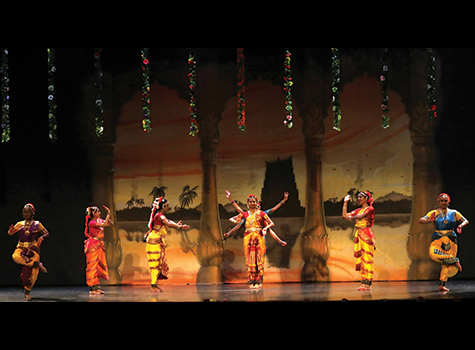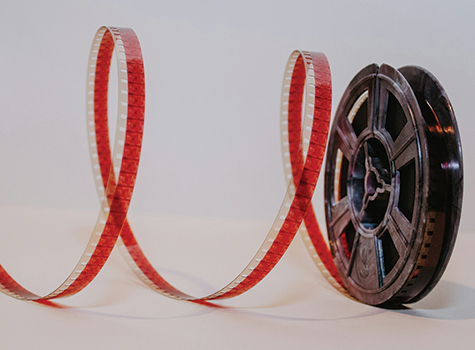The pandemic hit last year just before things were ramping up for Full Frame, the annual documentary film festival in Durham, NC. Its cancellation was the first harbinger for me of things to come.
This year the festival was delayed from April to June and, the 24th annual fest was held virtually. Full Frame is always an excellent event and even for those of us fatigued by virtual events, it offered, as always, many compelling films – this year viewable from home. Though there were many less films (21 feature films and 15 shorts) than the typical year with around 100 films, and no hubbub and energy of the in-person event, it was another success through the strength and diversity of films, as could be expected. Hats off to the organizers for finding a way to have the event this year virtually.
I was able to see a few films. Overall, the Festival was again entertaining, exciting, fascinating – all the adjectives that bring people together to enjoy documentaries (truth can be more interesting than fiction!).
Here are a few films that I saw and others that look particularly appealing. A limited number of tickets were available while several screenings sold out.

Speaking of being sold out, one film that I didn’t see and was sold out is My Name is Pauli Murray (Dir. Betsy West & Julie Cohen, 2021). I live in Durham, NC, and it’s exciting to have a local hero depicted in a film by the directors of the very well-received RBG (2018) about Justice Ruth Bader Ginsburg, who was influenced by Pauli Murray. A large mural a short walk from Full Frame offices and festival site honors this social justice non-binary Black activist who lived in Durham for a while. She was an early champion of civil and sexual orientation rights in the 1930s, coining the term “Jane Crow” and wrote a book in 1950 that was seminal in the legal fight against segregation, and became a friend of First Lady Eleanor Roosevelt. Both her importance and the reputation of the directors make this a must-watch film.
I was immersed in Radiograph of a Family (Firouzeh Khosrovani, 2021) almost from the very beginning. Through archival footage and family photographs, the director describes the fascinating relationship of her parents. The setting is pre-revolutionary Iran and her father is following a very challenging scientific education in Switzerland. His time is so constrained that he marries his love in Iran and asks the family to formally arrange the marriage without his presence. It is a tremendous culture shock for the traditional mother Tayi from very beginning when she arrives in Switzerland. Tavi is profoundly uncomfortable with her new husband Hossein’s indulgence in alcohol, dancing, and parties, as well as her perceived decadence of Swiss society. As the Iranian revolution unfolds, she is swept up in it, to her husband’s consternation. I loved everything about this film – the intimate view of a family in this important historical period, the clash of cultures not just outside of Iran but within the country, and the gorgeous cinematography, gently and invitingly paced.
I have admired the small-town midwestern insight of Pulitzer Prize winner Art Cullen as I have followed his appearances on PBS’ Newshour during the last election cycle. Storm Lake (Dirs. Jerry Risius and Beth Levison, 2021) follows Cullen in small-town Storm Lake, Iowa as he runs his biweekly “Storm Lake Times” (circulation of almost 3000) newspaper. With so many local newspapers closing, the film reinforces the importance of news – good, well-written, and empathetic to local needs – to small communities through the lens of what is important to them. News and informed democracy are too often viewed top-down, but this charming film reminds us of the value and impact of inductive and localized reporting.
Involved as an alum for two schools in the interview process for students applying to college, I found Debbie Lum’s 2021 film Try Harder! particularly interesting. The film explores stereotypes of Asian families as being laser-focused on getting their children into top universities. The film follows students at Lowell High School, a San Francisco public school with a large majority of Asian students, and their smarts, family pressure and support, and dedication to college admissions. Though there were many disappointments in admission decisions, the film was otherwise very positive in portraying all the characters as being likable and wanting not just themselves but their peers to succeed.
I was able to see several shorts. The dramatically powerful black-and-white cinematography of Spirits and Rocks: an Azorean Myth (Dir. Aylin Gökmen, 2020) in 14 minutes depicts lives of inhabitants of a Portuguese volcanic island in the mid-Atlantic Azores and how they turn to faith to help them with grief and fear of eruption.

Three Songs for Benazir (Dirs. Elizabeth and Gulistan Mirzaei, 2021) is a 22-minute film set in Afghanistan. Shaista and his new wife Benazir are refugees in a camp in Kabul. Trying to make a name for himself and earn a living, the husband wishes to join the army, but his illiteracy and opposition of his family leads him to poppy harvesting, which in turn leads to addiction. A surveillance craft seeming to permanently float above the camp, the fear of imminent Taliban attack, parental vs. societal restrictions, and circumstances themselves all hem Benazir and Shaista into their camp.
Atlanta-based photographer Logan L. Burroughs’ Spirit never dies, only transitions is a 10-minute, visual poem exploring the Black experience rooted in ritual. The detailed close-up cinematography, spoken poetry, and subtle jazz soundtrack is an invitation to reflect on the everyday-experienced life and inspired me to seek out more of her compelling imagery on her website, llburroughs.com.
In the 18 ½ minute film A View from Above (Dir. Dylan Werkman, 2021), beautiful scenes of the earth from space as well as several earthbound settings are mesmerizing. The Eagles of the Desert (Águilas del Desierto) search monthly for missing migrants in the Arizona desert; the heartbreaking film Águilas (Dir. Kristy Guevara-Flanagan, 2021) documents their often-tragic discoveries of abandoned paraphernalia and, unfortunately, dead bodies.
Perhaps even more depressing is the very short 5-minuted animated The Chimney Swift (Dir. Frédéric Schuld, 2020) describing “climbing boys” ages 4-14 (yes, starting at age four!) who, during the Industrial Revolution, would be sent up chimneys to clean them. Many would have to be prodded ahead with needles to their feet or by a fire lit beneath them, and some fell to their deaths. As a father of a preteen, I found quite disturbing the story behind the 33-minute The Doll (Dir. Elahe Esmaili, 2021). Single father of 14-year-old Asal seriously contemplates whether to allow her to marry as a teen.
Unfortunately, many of these films only tour the festival circuit. However, some do have or are working on distribution plans. I encourage readers to consider attending Full Frame next year, presumably in-person in April 2022. There are also year-round programs including sometimes free screenings. For more details visit Fullframefest.org.



